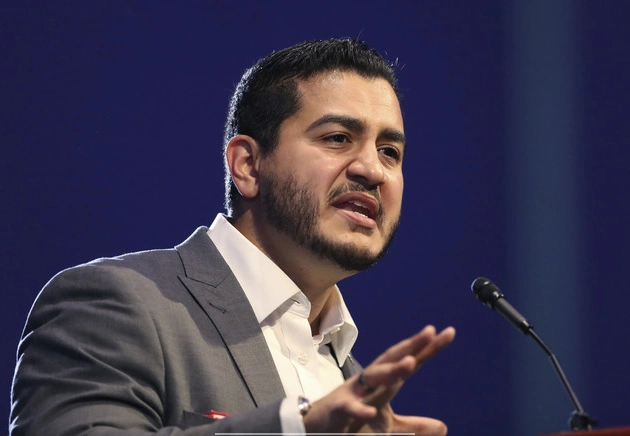
A podcaster and former Wayne County official’s entrance into the U.S. Senate race with the backing of Bernie Sanders — the progressive champion’s first candidate endorsement of the year — has all but cemented Michigan as a frontline battleground state for the midterms.
Michigan’s Significance in the Democratic Landscape
Michigan is shaping up to be the state where the left makes its big stand, offering the clearest test yet of the direction of the Democratic Party.
Before Abdul El-Sayed announced his campaign, state Sen. Mallory McMorrow, a liberal Democrat, splashed into the race pillorying the “same old crap out of Washington” and declaring she would not back Senate Minority Leader Chuck Schumer.
Meantime, moderate Democratic Rep. Haley Stevens is widely expected to declare her Senate candidacy as early as next week. She is contacting Democrats urging them to run to succeed her in her House seat, according to two Michigan Democrats familiar with the calls and granted anonymity to describe them.
Progressives vs. Moderates: An Ideological Battle
It’s touching off a battle between progressives and moderates on everything from economic and foreign messaging to who should lead the party. And the winner of the primary in the key battleground will help shape national Democrats’ messaging in 2026 and the presidential election two years later.
Already, El-Sayed has swiped at McMorrow, saying anyone who “unilaterally oppose[s]” a leadership candidate without knowing the alternatives is “is either unnuanced or unsophisticated.”
“If the left does not make its stand, we will not have strength in this seat,” said Michigan State Rep. Emily Dievendorf, a progressive. “It is a litmus test for whether we are going to be willing to have courage in this moment. And I do think the two Democratic candidates that have emerged so far certainly aim to speak to the needs of our more progressive voters and the average American.”
Defining the Future of the Democratic Party
There are fault lines even along the party’s left flank, and the Michigan primary could help to define how aggressively Democrats across the ideological spectrum go after aging members of their own party. El-Sayed and Stevens are defending Schumer, while McMorrow has said she would cast him aside over his handling of a GOP-backed government funding bill.
The state is “at the center of this conversation,” said state Rep. Laurie Pohutsky, a progressive. “We’re going to continue being a focal point when it comes to that debate, and I think that we are also in a position to kind of reach a sort of consensus about what we need right now in terms of moving the Democratic Party forward.”
The Road Ahead: Challenges and Strategies
The race is still in its infancy. But the contested primary — and the evident ideological schisms — are raising alarms among some strategists who fear the intra-party fight could damage whichever candidate advances to the general election. The race to succeed retiring Democratic Sen. Gary Peters is a top target of Republicans in a state that Donald Trump carried narrowly last year.
“The Michigan Senate seat is imminently winnable, but if the primary challengers decide to turn this into a proxy fight among the party’s most online factions, we are cooked,” said Caitlin Legacki, a Democratic campaign veteran.
Michigan’s Role in National Politics
In an interview, El-Sayed, who has been sharply critical of Israel actions in Gaza, infuriating some centrist Democrats, played down the national resonance of the race.
“I think Bernie’s endorsing in this race because he sees the opportunity to empower somebody who wants to join him in the Senate to make sure that we’ve got a politics that works for working people,” he told POLITICO.
Sanders hasn’t had much success with his statewide endorsements in Michigan in the past. After he endorsed El-Sayed for governor in 2018, Gretchen Whitmer, the more moderate Democrat who ran on a slogan of ‘fix the damn roads,’ trounced him in all 83 counties.
Strategies and Counter-Strategies
Stevens’ camp views El-Sayed and McMorrow as occupying the same progressive lane. In response, she is likely to not nationalize the race, but “Michiganize” it, according to an aligned strategist granted anonymity to discuss her strategy.
But even in laying out that approach to the campaign, the strategist suggested a rebuke of the progressive left.
Zack Stanton contributed to this report.











